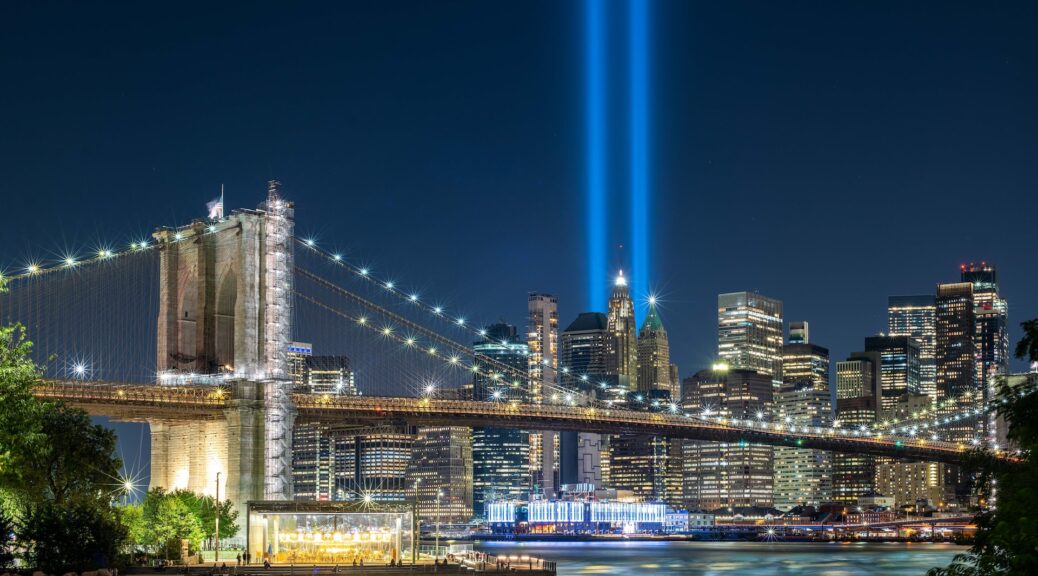Every year we reflect on the horrors that were brought to America on September 11, 2001. But after 21 years, have the effects of travesty lifted?
Year after year when the news reflects on September 11, 2001, I think of how this country’s safety and security were threatened. I think of all the lives lost, heroes, anger, the survivors’ guilt of ones who got away and the void in families across the nation. As all America grieved the biggest mass casualty it has ever seen on its citizens, we entered into times of survival and disbelief. As night fell and the dust settled, September 12, 2001 fell upon the morning sky. The media outlets of America never slept, but worked diligently through the early morning hours, reciprocating the tragic history of the day before and setting the tone for years to come.
I originally understood this day to be described as the day that hope rose above the ashes and our flag stood high above the rubble. Communicating that in spirit, we certainly had not accepted defeat.
But I digress.
The morale of the country was curated day in and day out to hold those responsible for America’s biggest tragedy accountable. America quickly found out who was, indeed, responsible via George Bush’s Address to the Nation. The raw emotion of citizen’s anger finally had a place at the feet of Osama Bin-Laden and al Qaeda.
Though people came by the thousands to set the differences aside and unite as one for a greater cause, all these years later, some Americans still hold a distaste for Muslims and Arabs.
But, how did we get here? Where did we draw the connection from one group to an entire ethnicity/religion?
Today, most would agree that the political environment of the present is definitely not the same as it was 20 years ago. In most scenarios in the media, we see polarized political views pick apart nearly every socially significant topic. We could “theoretically” say this is part of the technological era and lies at the fault of earlier generations that utilize technology the most. Or perhaps there is just more room for discourse, insensitive jokes, stigmas and opportunities for discrimination than there was before. While that may be true to some degree, I also have to ask…Who gets to decide marginalization of certain people as a norm?
The real answer…. is everyone. But, we can’t blame everyone. What started this?
Let’s take a look at where audiences are encoding…
In George Bush’s October 7, 2001, address that announced the U.S. military had begun strikes on al Qaeda terrorist training camps and military installations of the Taliban regime in Afghanistan stating, “Today we focus on Afghanistan, but the battle is broader. Every nation has a choice to make. If any government sponsors the outlaws and killers of innocents, they have become outlaws and murderers, themselves. And they will take that lonely path at their own peril.” Though this may be a blanket statement about militants in al Qaeda, it subtly involves the community of Afghanistan as a whole whether they agree with extremism groups such as al Qaeda or not.
On top of that, there are news outlets such as NBC, picking apart the meaning of what this speech actually means which further induces statements that group the members of an entire country together whose primary religion is Muslim.
In the media, Muslims and Arabs have been repeatedly portrayed or associated in a negative manner, moreso in the beginning. Since before the War on Terror, Afganastan and its people have always been described as the enemy. Though the media may not suggest that they represent the entirety of their religion or ethnicity, there is, however, an open window towards the association of ethnicity and this event, paired with lack of representation in other avenues that ultimately would help separate these two concepts. Put simply, this event may be the only thing that some people have to associate with a certain group of people. For instance, did we ever really hear about what other members of the Muslim or Arab regions think about what was done to America that day after it happened? As for myself, I haven’t.
Anna Halafoff and Eniq Weng state in the journal Media Representations of Religion, Spirituality and Non-Religion in Australia that instances like this, “highlighted the need for more educational programs focused on religious literacy, that include learning about diverse religions and world views and of their presence in society, in order to advance greater levels of understanding and respect for them and a greater need for journalists and journalism students to better equipped in sensitively handling news reporting or involving religion.”
That being said, I think we can agree that diversity in the media prior to this event would have softened the scrutiny that the Muslim or Arab community face even after two decades.
Photo by Jack Cohen on Unsplash
- 9/11 and America’s Diversity – by Devan Smith - November 3, 2022

